© 2025 3WIN Corp. All Rights Reserved.
/ Site by AVINTIV

As CBD continues to pick up more steam in the mainstream media, tons of questions are coming to the surface. Due to its popularity, now there are different ways of taking CBD, CBD Isolate or Full-Spectrum CBD, and how the CBD is actually manufactured.
Odds are if you’ve shopped for CBD oil lately, you’ve seen the words “isolate” or “full-spectrum” on every major eCommerce website. Before we start explaining the difference between CBD Isolate and Full-spectrum CBD, we’d like to inform those of you who aren’t too familiar with CBD and what it actually is.
Just remember that taking CBD oil is different for every user. There is no standard of taking CBD oil that has been backed by the FDA yet. This article should help give you the proper information for you to decide for yourself.
Cannabidiol (CBD) is the primary cannabinoid found exclusively in hemp and cannabis plants. CBD is non-psychoactive and does not produce a single psychotropic effect, which means you won’t get that “high” feeling.
CBD has seen much popularity lately with people taking it for many different reasons. You can buy CBD in oils, edibles, topicals, and vapes.
CBD is regularly extracted with advanced extraction technology that removes the cannabinoids from the plants without harm. Industrial hemp is the go-to source for this extraction process due to its high CBD levels and lower content of THC.
More complicated setups typically automize these processes and do not use any harmful chemicals during the procedure, which is making CBD very popular.
CBD oil is created by first extracting the compound from the industrial hemp plant and then mixing it together with a carrier oil to form a tincture. The two most popular methods of extracting CBD are CO2 extraction and utilizing an ethanol method. There are mixed feelings on which extraction method produces the highest-quality CBD. Both ways are capable of creating a safe and quality product when the CBD is sourced from a premium manufacturer.
When deciding what amount of CBD oil to take, you want to remember that CBD oil, just like anything, is different for every person. There is still no recommended amount other than starting lower and increase over time as you get used to it.
We recommend taking CBD oil by dropping it underneath your tongue and holding it there for 30 seconds to 90 seconds. The CBD oil will get absolved into your bloodstream much quicker versus swallowing the CBD oil.
You can also add your CBD oil into your favorite beverage or food as well.
CBD isolate is a form of CBD that is either a crystalline solid or powder form that contains 99% pure CBD. For the more scientific readers, CBD isolate is a chemical compound and one of the purest forms of cannabis based on how it is derived from the cannabis plant during the extraction process.
CBD isolate uses an extraction process that removes all of the active compounds of the cannabis plant and then removes all other phytocannabinoids, leaving CBD at its purest form.
When the extraction process is complete, the CBD will either be large CBD crystals or a fine white powder.
The CBD isolate is then turned into the CBD products that you know and love through following a further process. Make sure when buying CBD that it’s coming from a reputable source.
Full-spectrum CBD means that the CBD contains all of the cannabinoids that were found in the Cannabis plant, other than just CBD. In fact, CBD is one of over 100 cannabinoids in the Cannabis sativa plant. Full-spectrum CBD unlike CBD isolate, includes most of the additional cannabinoids.
Full-spectrum CBD products have often been classified as having the “entourage effect,” which refers to increased effectiveness of these products due to having more cannabinoids working together, instead of one.
Research has actually shown that cannabinoids that work together are more potent than cannabinoids working by themselves.
Full-spectrum CBD may also contain the following additional ingredients
When CBD gets extracted, CBD isolate goes in the route of stripping all additional compounds out and leaving CBD in its most pure form. Full-spectrum CBD leaves those other compounds to allow all of the cannabinoids to work synergistically together, resulting in the “entourage effect.”
CBD isolate contains zero THC, while full-spectrum CBD may legally have up 0.3% THC in it. Neither results in a “high” feeling, but many users have stated that full-spectrum CBD is more powerful than CBD isolate.
If you’re worried about passing an upcoming drug test of any kind, we recommend using CBD isolate as THC with even 0.3% can show up in a drug test.
Every person reacts to CBD differently, so it’s hard to decide which form of CBD to take without testing both of them and seeing how your body reacts.
CBD isolate has the upper arm of being the purest form of CBD with no risk of psychoactive effects and nearly eliminates failing a drug test. Really the only downfall to taking CBD isolate over full-spectrum CBD is not experiencing the “entourage effect.”
Full-spectrum CBD, on the other hand, provides the full “entourage effect” while providing many more cannabinoids in the CBD. Full-spectrum CBD goes through far much less processing as it’s not getting all of the additional compounds stripped out.
One downfall to full-spectrum CBD is that it has a much stronger and more distinct taste that some people may not like. That mixed with the possibility of failing a drug test makes some users choose CBD isolate instead.
Above all else, the most important aspect of choosing your CBD is understanding and researching the origin of where the CBD is coming from. CBD isolate or full-spectrum CBD won’t matter much if the CBD is coming from a poor quality manufacturer, so make sure you do your homework.
CBD oil is safe for most individuals. CBD oil has been shown to provide therapeutic benefits as well as act as daily nutritional support for a happier and healthier lifestyle. There are many forms of taking CBD outside of just CBD oil. For anyone who can’t take CBD oil due to intolerance or prescription interactions, topical CBD products are a great choice for delivering you the same CBD benefits.
Navigation

/ Site by AVINTIV
* Products not intended for nicotine use.